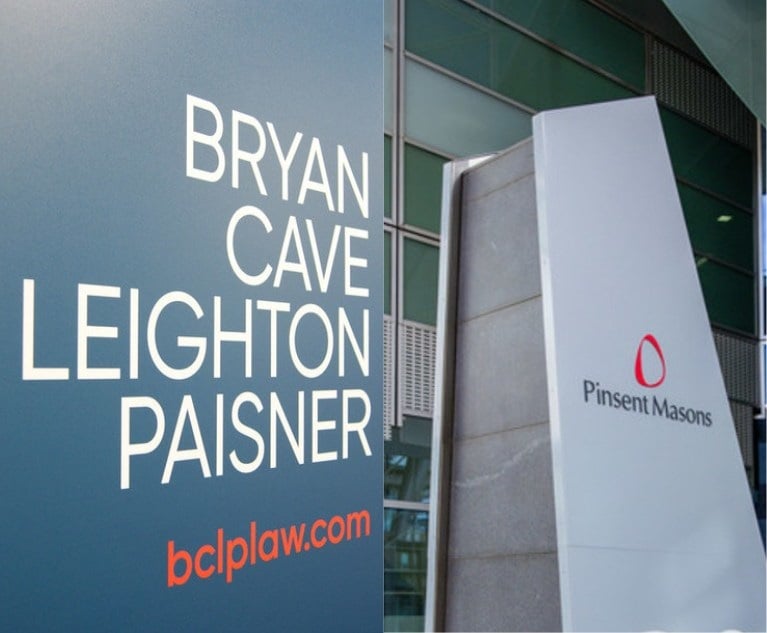Employment Tribunal rules in favour of law firms in key age discrimination case
The Employment Tribunal has rejected an age discrimination claim by lawyer Leslie Seldon against his former firm Clarkson Wright & Jakes (CWJ), which had initially seemed likely to threaten law firm's ability to enforce a compulsory retirement age for partners. The ruling, made on Tuesday (28 May), ends a long-running battle between Seldon and his former firm, which began in an employment tribunal in 2007 when Seldon, who was ousted from CWJ's partnership in 2006 when he turned 65, argued that the firm's compulsory retirement age constituted age discrimination.
May 31, 2013 at 06:56 AM
3 minute read
The Employment Tribunal has rejected an age discrimination claim by lawyer Leslie Seldon against his former firm Clarkson Wright & Jakes (CWJ), which had initially seemed likely to threaten law firm's ability to enforce a compulsory retirement age for partners.
The ruling, made on Tuesday (28 May), ends a long-running battle between Seldon and his former firm, which began in an employment tribunal in 2007 when Seldon, who was ousted from CWJ's partnership in 2006 when he turned 65, argued that the firm's compulsory retirement age constituted age discrimination.
The case turned on whether age discrimination inherent in mandatory retirement policies can be justified under the law as a proportionate means of achieving a legitimate business aim, with CWJ arguing a list of six justifications, focused on making room for associates and junior partners to progress within the firm.
Seldon's claim had already been rejected by the Court of Appeal in 2011 and by the Supreme Court in 2012, when it was referred back to the Employment Tribunal to consider whether the retirement age of 65 was justified.
Tuesday's ruling by the Employment Tribunal though backs all of the previous decisions in favour of CWJ and seemingly offers more assurance for law firms seeking to justify their policies towards partner retirements. While many firms have raised partner retirement ages in response to age discrimination legislation, a large number have still opted to retain a default retirement age.
The Tribunal's ruling stated: "The lower the retirement age the more harm to the partners who are required to retire and the higher the retirement age the more harm to the associates who may leave.
"The age has to reflect the expectations of the partners and associates, ensure succession and fulfill the needs of the partnership."
Considering these two points the tribunal concluded: "In concluding that the age of 65 was proportionate the Tribunal has taken into account…that the partners had consented to the mandatory retirement age and that the default retirement age at the relevant time was 65. The Tribunal was support by the judgment of the Court of Appeal and its conclusion that a) the age of 65 was a fair and proportionate cut-off date in relation to the two aims and b) the selection of one of a number of possible ages was not of itself unlawful."
Related: Supreme Court rejects key challenge to partner retirement policies
This content has been archived. It is available through our partners, LexisNexis® and Bloomberg Law.
To view this content, please continue to their sites.
Not a Lexis Subscriber?
Subscribe Now
Not a Bloomberg Law Subscriber?
Subscribe Now
NOT FOR REPRINT
© 2025 ALM Global, LLC, All Rights Reserved. Request academic re-use from www.copyright.com. All other uses, submit a request to [email protected]. For more information visit Asset & Logo Licensing.
You Might Like
View All
A&O Shearman, Cleary Gottlieb Act on $700M Dunlop Tire Brand Sale to Japan's Sumitomo



Stewarts and DAC Beachcroft Lead on £2B Leicester City Helicopter Crash Litigation
Trending Stories
- 1Fulton DA Seeks to Overturn Her Disqualification From Trump Georgia Election Case
- 2The FTC’s Noncompete Rule Is Likely Dead
- 3COVID-19 Vaccine Suit Against United Airlines Hangs on Right-to-Sue Letter Date
- 4People in the News—Jan. 10, 2025—Lamb McErlane, Saxton & Stump
- 5How I Made Partner: 'Be Open With Partners About Your Strengths,' Says Ha Jin Lee of Sullivan & Cromwell
Who Got The Work
Michael G. Bongiorno, Andrew Scott Dulberg and Elizabeth E. Driscoll from Wilmer Cutler Pickering Hale and Dorr have stepped in to represent Symbotic Inc., an A.I.-enabled technology platform that focuses on increasing supply chain efficiency, and other defendants in a pending shareholder derivative lawsuit. The case, filed Oct. 2 in Massachusetts District Court by the Brown Law Firm on behalf of Stephen Austen, accuses certain officers and directors of misleading investors in regard to Symbotic's potential for margin growth by failing to disclose that the company was not equipped to timely deploy its systems or manage expenses through project delays. The case, assigned to U.S. District Judge Nathaniel M. Gorton, is 1:24-cv-12522, Austen v. Cohen et al.
Who Got The Work
Edmund Polubinski and Marie Killmond of Davis Polk & Wardwell have entered appearances for data platform software development company MongoDB and other defendants in a pending shareholder derivative lawsuit. The action, filed Oct. 7 in New York Southern District Court by the Brown Law Firm, accuses the company's directors and/or officers of falsely expressing confidence in the company’s restructuring of its sales incentive plan and downplaying the severity of decreases in its upfront commitments. The case is 1:24-cv-07594, Roy v. Ittycheria et al.
Who Got The Work
Amy O. Bruchs and Kurt F. Ellison of Michael Best & Friedrich have entered appearances for Epic Systems Corp. in a pending employment discrimination lawsuit. The suit was filed Sept. 7 in Wisconsin Western District Court by Levine Eisberner LLC and Siri & Glimstad on behalf of a project manager who claims that he was wrongfully terminated after applying for a religious exemption to the defendant's COVID-19 vaccine mandate. The case, assigned to U.S. Magistrate Judge Anita Marie Boor, is 3:24-cv-00630, Secker, Nathan v. Epic Systems Corporation.
Who Got The Work
David X. Sullivan, Thomas J. Finn and Gregory A. Hall from McCarter & English have entered appearances for Sunrun Installation Services in a pending civil rights lawsuit. The complaint was filed Sept. 4 in Connecticut District Court by attorney Robert M. Berke on behalf of former employee George Edward Steins, who was arrested and charged with employing an unregistered home improvement salesperson. The complaint alleges that had Sunrun informed the Connecticut Department of Consumer Protection that the plaintiff's employment had ended in 2017 and that he no longer held Sunrun's home improvement contractor license, he would not have been hit with charges, which were dismissed in May 2024. The case, assigned to U.S. District Judge Jeffrey A. Meyer, is 3:24-cv-01423, Steins v. Sunrun, Inc. et al.
Who Got The Work
Greenberg Traurig shareholder Joshua L. Raskin has entered an appearance for boohoo.com UK Ltd. in a pending patent infringement lawsuit. The suit, filed Sept. 3 in Texas Eastern District Court by Rozier Hardt McDonough on behalf of Alto Dynamics, asserts five patents related to an online shopping platform. The case, assigned to U.S. District Judge Rodney Gilstrap, is 2:24-cv-00719, Alto Dynamics, LLC v. boohoo.com UK Limited.
Featured Firms
Law Offices of Gary Martin Hays & Associates, P.C.
(470) 294-1674
Law Offices of Mark E. Salomone
(857) 444-6468
Smith & Hassler
(713) 739-1250








